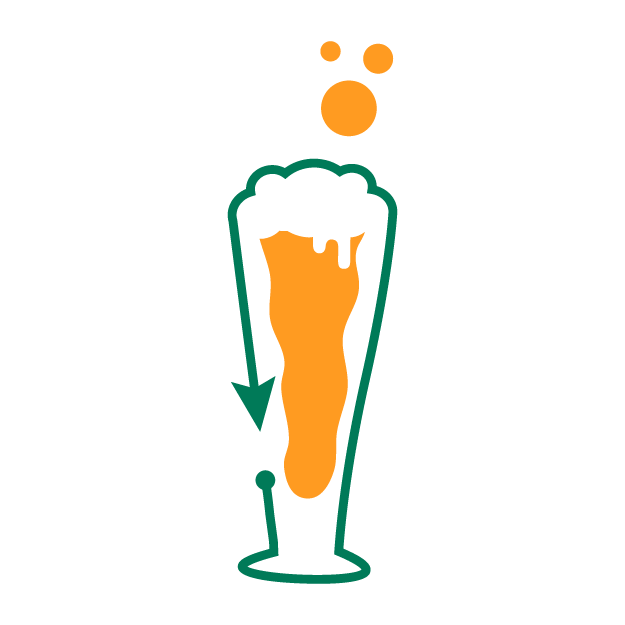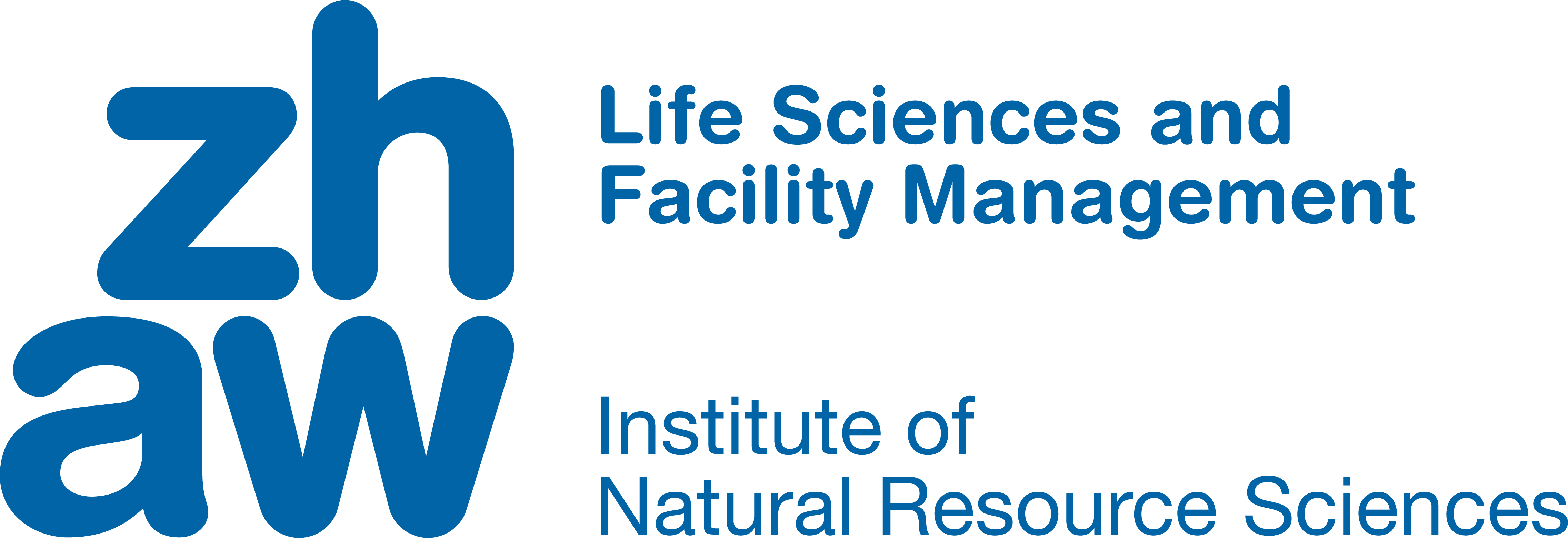Work plan
The brewery sector is a clear example of bio-based industries where large amounts of low-value organic solid by-products such as bagasse, wastewater and biogenic gases such as CO2 and CH4, are underused or even a wastage of valuable carbon, which represents unique and unexploited business opportunities.
Work plan
The brewery sector is a clear example of bio-based industries where large amounts of low-value organic solid by-products such as bagasse, wastewater and biogenic gases such as CO2 and CH4, are underused or even a wastage of valuable carbon, which represents unique and unexploited business opportunities.
Why CHEERS?
Food & Beverage industry in Europe produces 30 Mton/y of waste and 94 Mton of CO2 eq/y, which entails a high environmental impact.
Likewise, large amounts of byproducts are generated during biorefining in this sector, which often end up as low-value market products (animal feed, compost, biogas) or landfilled. This also generates a high environmental impact and negatively affects human health quality and biodiversity on earth. Therefore, the deployment of innovative sustainable biorefineries in this specific sector is needed, and biotechnological solutions based on an effective prospecting and greater use of biological diversity, are the cornerstone to achieve this goal.
Why CHEERS?
Food & Beverage industry in Europe produces 30 Mton/y of waste and 94 Mton of CO2 eq/y, which entails a high environmental impact.
Likewise, large amounts of byproducts are generated during biorefining in this sector, which often end up as low-value market products (animal feed, compost, biogas) or landfilled. This also generates a high environmental impact and negatively affects human health quality and biodiversity on earth. Therefore, the deployment of innovative sustainable biorefineries in this specific sector is needed, and biotechnological solutions based on an effective prospecting and greater use of biological diversity, are the cornerstone to achieve this goal.
Side-streams mapping and optimisation according to circular economy needs
SEP 2022 – MAR 2023 | Led by Mahou San Miguel
OBJECTIVES
- A full characterization of the side-streams at Lleida case study site will be conducted.
- The insect and microbial biomass
conversion processes and Down Stream Process (DSP) will be tailored to the specific compositions of the case study site side-streams. - A mapping of the waste biomass and off-gases conversion potential in 4 additional bio-based industries will be carried out.
- An evaluation of the regulatory and market penetration barriers of the final bio-based products will be performed.
- A first feasibility study of the CHEERS approach will be conducted.
Insect platform
APR 2023 – JUL 2026 | Led by PROTEINSECTA
OBJECTIVES
The insect platform supports the bioconversion of bagasse to an insect protein ingredient to produce 2 protein rich drinks. The design of the insect demo platform will be based on WP1. Its performance will be evaluated through ad hoc formulated diets using real site side-streams (mainly bagasse), and based on physical-chemical and nutritional and storage conditions analysis.
The specific objectives are:
- Basic & detailed engineering of the demo insect breeding unit.
- Commissioning, construction and set up at the case study site.
- Long-term validation, assessment, and optimization of its performance to cope with intermediate and product specifications.
Microbial platform
APR 2023 – JUL 2026 | Led by AQUALIA
OBJECTIVES
The microbial platform comprises the microbial conversion of CO2 into caproic acid and hypochlorite, and of CH4 into Single Cell Protein (SCP) and ectoine. The design of the demo units will be based on WP1. The performance of the microbial platform will be assessed under real conditions and intermediates will be fully characterized for their DSP (WP4) and validation (WP5).
The specific objectives are:
- Basic and detailed engineering of the demo CO2 and CH4 conversion units.
- Commissioning, construction and set-up of the demo units.
- Long-term validation, assessment, and optimization of their performance to cope with intermediates and product specifications.
Integration and cascading processing
APR 2023 – AUG 2026 | Led by GENIA BIOENERGY
OBJECTIVES
The novel insect and microbial biomass produced from the upgrading of bagasse, wastewater, CO2 and CH4 in WP3 will be processed to obtain insect protein flour, caproic acid, hypochlorite, SCP and ectoine complying with the specifications of WP5. The design and/or operation of the DSP demo units integrated in the insect and microbial platforms will be based on WP1 and involves:
- Basic and detailed engineering of the demo DSP units (where applicable)
- Commissioning, construction and set up of the demo DSP units (where applicable)
- Long-term validation, assessment, and optimization of their performance to cope with WP5 specifications.
Bio-based product development and validation
FEB 2025 – AUG 2026 | Led by SYMRISE
OBJECTIVES
The final bioproducts need to meet the relevant standards and market requirements to ensure market uptake and consumer/end-user acceptance.
Validation of final products, namely 2 new drinks enriched with insect protein ingredient, caproic acid enriched feed, chlorine-based disinfectant, ectoine-based cosmetic and SCP-based petfood, will be tested according the requirements of each destination market.
Environmental & economic impact and exploitation strategy
SEP 2022 – JUL 2026 | Led by ZHAW
OBJECTIVES
The technical and economic feasibility of the CHEERS biorefinery and identification of the optimal scale and operating conditions for optimal integration of the 5 value chains will be carried out.
The environmental, social and economic sustainability performance of CHEERS will be assessed and compared with non-plant biomass alternatives using a Life Cycle Sustainability (LCSA) approach. This will also include an assessment of the life cycle biodiversity impacts on the relevant industries and their supply chain.
Integrated sustainability assessment and development of business models will be performed at three brewery size-scales.
Communication and Dissemination
SEP 2022 – AUG 2026 | Led by AINIA
OBJECTIVES
- To define the messages of CHEERS
- To identify target audiences and prospective end-users
- To inform the target audiences about the the project and its relevance
- To maximise the impact of the project and its research and innovation
- To support market acceptance of CHEERS and its results
Project managament
SEP 2022 – AUG 2026 | Led by MAHOU
OBJECTIVES
This Work Package aims at coordinating activities and assuring good communication within the consortium and EC, and between Work Packages, to guarantee deliverables presentation and the achievement of all milestones, and to monitor/solve any issue during CHEERS execution. It considers the financial control and risk assessment.
Side-streams mapping and optimisation according to circular economy needs
SEP 2022 – MAR 2023 | Led by Mahou San Miguel
OBJECTIVES
- A full characterization of the side-streams at Lleida case study site will be conducted.
- The insect and microbial biomass
conversion processes and Down Stream Process (DSP) will be tailored to the specific compositions of the case study site side-streams. - A mapping of the waste biomass and off-gases conversion potential in 4 additional bio-based industries will be carried out.
- An evaluation of the regulatory and market penetration barriers of the final bio-based products will be performed.
- A first feasibility study of the CHEERS approach will be conducted.
Insect platform
APR 2023 – JUL 2026 | Led by PROTEINSECTA
OBJECTIVES
The insect platform supports the bioconversion of bagasse to an insect protein ingredient to produce 2 protein rich drinks. The design of the insect demo platform will be based on WP1. Its performance will be evaluated through ad hoc formulated diets using real site side-streams (mainly bagasse), and based on physical-chemical and nutritional and storage conditions analysis.
The specific objectives are:
- Basic & detailed engineering of the demo insect breeding unit.
- Commissioning, construction and set up at the case study site.
- Long-term validation, assessment, and optimization of its performance to cope with intermediate and product specifications.
Microbial platform
APR 2023 – JUL 2026 | Led by AQUALIA
OBJECTIVES
The microbial platform comprises the microbial conversion of CO2 into caproic acid and hypochlorite, and of CH4 into Single Cell Protein (SCP) and ectoine. The design of the demo units will be based on WP1. The performance of the microbial platform will be assessed under real conditions and intermediates will be fully characterized for their DSP (WP4) and validation (WP5).
The specific objectives are:
- Basic and detailed engineering of the demo CO2 and CH4 conversion units.
- Commissioning, construction and set-up of the demo units.
- Long-term validation, assessment, and optimization of their performance to cope with intermediates and product specifications.
Integration and cascading processing
APR 2023 – AUG 2026 | Led by GENIA BIOENERGY
OBJECTIVES
The novel insect and microbial biomass produced from the upgrading of bagasse, wastewater, CO2 and CH4 in WP3 will be processed to obtain insect protein flour, caproic acid, hypochlorite, SCP and ectoine complying with the specifications of WP5. The design and/or operation of the DSP demo units integrated in the insect and microbial platforms will be based on WP1 and involves:
- Basic and detailed engineering of the demo DSP units (where applicable)
- Commissioning, construction and set up of the demo DSP units (where applicable)
- Long-term validation, assessment, and optimization of their performance to cope with WP5 specifications.
Bio-based product development and validation
FEB 2025 – AUG 2026 | Led by SYMRISE
OBJECTIVES
The final bioproducts need to meet the relevant standards and market requirements to ensure market uptake and consumer/end-user acceptance.
Validation of final products, namely 2 new drinks enriched with insect protein ingredient, caproic acid enriched feed, chlorine-based disinfectant, ectoine-based cosmetic and SCP-based petfood, will be tested according the requirements of each destination market.
Environmental & economic impact and exploitation strategy
SEP 2022 – JUL 2026 | Led by ZHAW
OBJECTIVES
The technical and economic feasibility of the CHEERS biorefinery and identification of the optimal scale and operating conditions for optimal integration of the 5 value chains will be carried out.
The environmental, social and economic sustainability performance of CHEERS will be assessed and compared with non-plant biomass alternatives using a Life Cycle Sustainability (LCSA) approach. This will also include an assessment of the life cycle biodiversity impacts on the relevant industries and their supply chain.
Integrated sustainability assessment and development of business models will be performed at three brewery size-scales.
Communication and Dissemination
SEP 2022 – AUG 2026 | Led by AINIA
OBJECTIVES
- To define the messages of CHEERS
- To identify target audiences and prospective end-users
- To inform the target audiences about the the project and its relevance
- To maximise the impact of the project and its research and innovation
- To support market acceptance of CHEERS and its results
Project managament
SEP 2022 – AUG 2026 | Led by MAHOU
OBJECTIVES
This Work Package aims at coordinating activities and assuring good communication within the consortium and EC, and between Work Packages, to guarantee deliverables presentation and the achievement of all milestones, and to monitor/solve any issue during CHEERS execution. It considers the financial control and risk assessment.
Latest news
CHEERS for the World creativity and Innovation day
On April 21st we celebrate the World creativity and Innovation day! Creativity and innovation are recognised as a potential way to provide new pathways towards achieving the Sustainable Development Goals from the Agenda 2030. [...]
Leading Innovation in Biorefinery from waste to opportunities
Genia Bioenergy participates in the European project called CHEERS, financed by Horizon Europe and supported by the European Union. This project represents a new biorefinery concept, inspired by natural biodiversity and based on microbial [...]
CHEERS partners meet for the General Assembly in Alovera
In the pursuit of a sustainable brewing industry, the CHEERS consortium gathered once again for its second General Assembly during 25th – 26th of January, this time in Alovera, Spain. On the first day, [...]



















